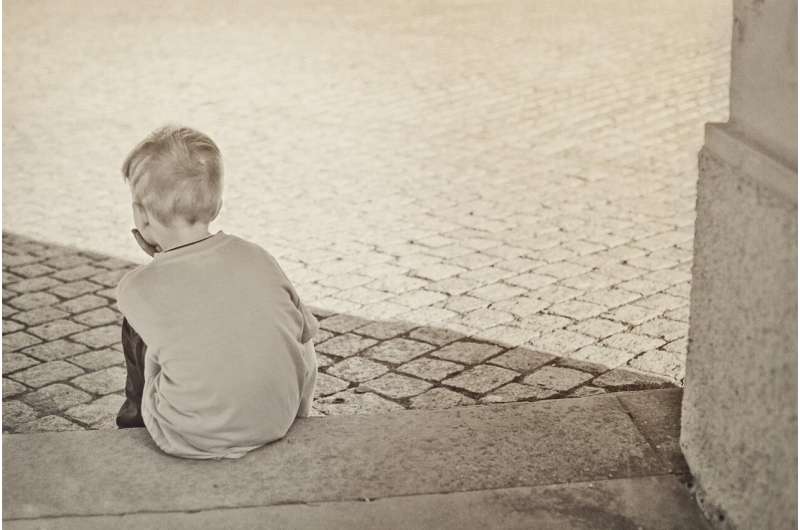This article has been reviewed according to Science X's editorial process and policies. Editors have highlighted the following attributes while ensuring the content's credibility:
fact-checked
trusted source
proofread
Calls for greater support for children bereaved by domestic homicide

Many children of domestic homicide victims experience profound trauma with lifelong impact. Now new research shows there are limited support services available to help them process and navigate their grief.
When a parent is murdered by their spouse or intimate partner, the victim's children are often overlooked. Many suffer long-term consequences with the crime taking a significant toll on their mental and physical health, as well as their ability to learn and form social connections.
The research, by the University of Melbourne and University of Edinburgh, found there is a distinct lack of tailored and targeted mental health support for children victim-survivors, resulting in many falling through the cracks.
Researchers interviewed 70 people in Australia and the United Kingdom, among them were 22 young people and adults with lived experience as a child, as well as 18 caregivers and family friends.
Most participants with lived experience as a child had lost their mother at the hands of their father or an intimate partner. They reported being stigmatized and silenced following their parent's murder and said they couldn't shake a feeling of being "not normal," which made it difficult to relate to their peers, leading to isolation.
Participants with lived or caregiving experience agreed there was a clear lack of peer support for children victim-survivors and these social interactions could be hugely beneficial for combating alienation. The study also found evidence-based therapeutic support for children and caregivers was often absent or extremely hard to access.
Report co-author Professor Eva Alisic said, "There is a lack of structural procedures in place for connecting children with safe, specialized services. As we've found in this study, access can often be a matter of luck or is dependent on caregivers reaching out for help.
"There needs to be a systemic coordinated approach to make sure no one is overlooked. If we, as researchers and practitioners, are confused about what services are available, imagine how confusing it is for families and children in these situations."
In cases where participants with lived experience were able to access formal support, researchers were told practitioners often didn't have the specialized expertise needed to treat children. For example, one participant said their symptoms of post-traumatic stress were misinterpreted as signs of autism.
The results also indicate children are rarely involved in the decision-making process after a domestic homicide, despite Australia's commitment to the United Nations Convention on the Rights of the Child. "Interviewees reported that, despite children's rights, they often had extremely limited input on critical decisions affecting their lives such as their living arrangements or contact with the offending parent," Professor Alisic said.
The report highlights the lack of reliable information on how many children are impacted by domestic homicide. The team's recent count, based on media reports, suggests at least 34 Australian children have lost their mothers to domestic violence between January and April this year.
The research team is calling on state and territory governments to systemically record the number of children bereaved by domestic homicide and to ensure ongoing tailored and grief-focused mental health treatment for children and caregivers without waitlists or restrictions on the number of sessions.
Other recommendations include having a specialist team available that can consult with professionals supporting families after domestic homicides as well as establishing dedicated peer support groups.
Provided by University of Melbourne




















